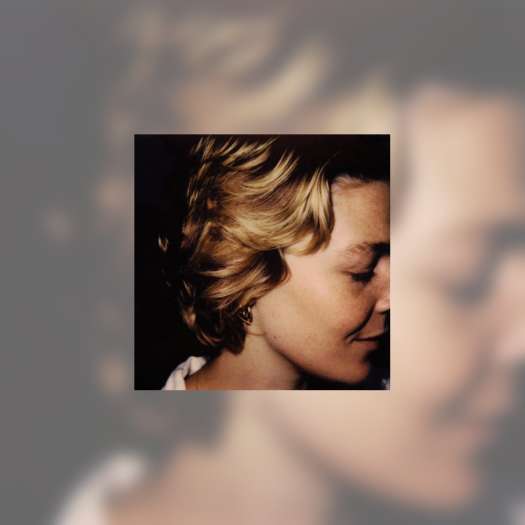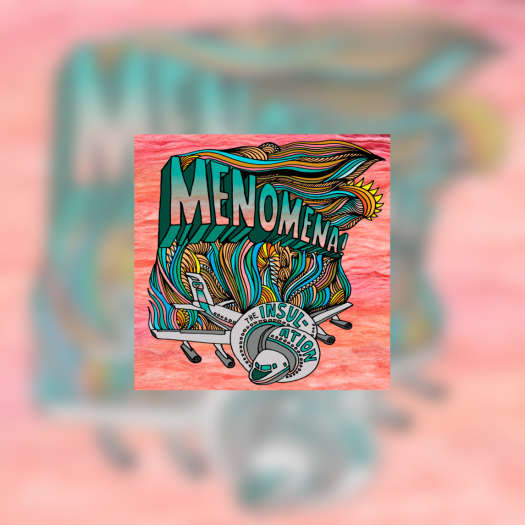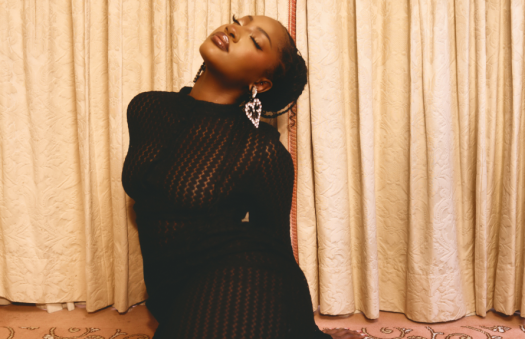Elisa Pangsaeng says she was nervous the first time she set foot in a recording studio as a teenager — but those nerves quickly dissipated as soon as she found her role there. Pangsaeng began her journey as a producer and audio engineer almost straight out of high school, working as a runner for local Vancouver studios Hipposonic and Van Howes in the mid-'00s. She'd get coffee and do dishes so she could sit in on sessions and pick the brains behind the console.
She juggled running at both studios and a restaurant job for about a year and a half before deciding to attend the now-defunct Pacific Audio Visual, where she also began working in 2009 while completing her degree. Eventually, this role in administration evolved into a position as an educator. "At the time, there were no other women there except the receptionist," she remembers in an interview with Exclaim!.
Pangsaeng has since found her footing as a producer and engineer, accumulating a plethora of technical credits for the likes of Lights, Said the Whale, Hey Ocean! and Yukon Blonde.
She also joined the Nimbus School of Recording & Media in 2015, first as a teaching assistant and later as an instructor. She was let go during the pandemic, alongside a number of her colleagues, as the school faced the challenges posed by COVID-19 lockdowns. She says, "It was unfortunate because I think everyone had really just pulled together in that moment to step into their roles."
By 2020, Pangsaeng had had a few students come through who'd gone on to work as engineers and was beginning to wrap her head around the potential impact of being an educator: "It became a pretty massive passion of mine, seeing how even my small role being there inspired other women to do it," she tells Exclaim! But as her career had progressed, the scene around her had struggled to evolve at the same pace.
More than a decade since Pangsaeng got her start, the field of audio production remains dominated by men. In a USC Annenberg Inclusion Initiative study study published this year, researchers surveyed the Billboard Hot 100 Chart from 2012 to 2020 and concluded that less than three percent of the 900-song sample were produced by women. There are mainstream mavericks, of course, like Taylor Swift collaborator Laura Sisk or Weezer producer Suzy Shinn, but they remain the exception rather than the rule.
"There's this history of gatekeeping in a really strange way — like there's some sort of grand secret," says Pangsaeng, who points out that there's no need to be intimidated by audio production: "The technical stuff is not what makes this challenging — your phone is about as sophisticated as any DAW [digital audio workstation] out there. It's not complicated, but the psychology is more complex."
While the advent of GarageBand and YouTube tutorials has made music production more accessible, the microaggressions that come with working in the male-dominated audio space end up amounting to the erasure; we're seeing more and more performing artists who identify as women, non-binary, gender-queer or gender-fluid in the mainstream, but visibility struggles still persist for those working behind the scenes.
It's partly just a matter of perception. Pangsaeng asserts that many female or non-binary musicians don't receive the same credit as their male peers. "Why don't we call Beyoncé a producer?" she asks, "It's not so much that [the producers] are not out there, it's just that we're not calling them what they are."
Pangsaeng says that she was lucky to break into music production "as a recording engineer, versus as an artist trying to cross over." She says, "Nobody questions when a man produces their own album or is involved in the production of their own album; a woman who is doing the same or more gets second-guessed."
There's an unspoken stipulation that producers and engineers can't also be artists, and vice versa. "We're expected to do more, but then that somehow disqualifies all the other skill sets," says Pangsaeng, likening it to applying for a mortgage: "You have to meet a certain set of requirements as a woman to be called your job title."
Louise Burns knows this struggle first-hand. As a teenager, she played bass in the early-'00s band Lillix before going solo and releasing a string of albums under her own name in the past decade. More recently, she's ventured into music production, logging credits with up-and-coming artists like Fionn, Molly Annelle and Michaela Slinger. Her 2019 release Portraits was the first time she took a producer credit on one of her solo albums.
"A phenomenon that I hope other women haven't experienced, but I'm sure have, is a refusal to acknowledge you as a producer — like it's some sort of special status," Burns says. "There's a preciousness to calling yourself a producer."
When Lillix got started as high school students in Cranbrook, BC, they used to record on Cakewalk in the back studio of the local music store and even co-produced their second record on Madonna-founded label Maverick Records. Production and arrangement are a key part of how Burns approaches songwriting. "It's just built into my process," she explains, noting that starting to work with the DAW Logic 12 years ago changed the way she wrote music.
Burns was given the early opportunity to work with legendary producer Linda Perry, who was pretty much the only visible woman in production at the time. "Since then, there's the social movement in general of how women are perceived and spoken about in the media — partially triggered by the #MeToo movement — and it's all changed quite a bit from when I first started," she tells Exclaim! "I could count the amount of women producers and engineers I worked with back in the day but now I know so many."
Pangsaeng agrees: "If I were to go off the numbers, that's a dramatic difference from ten, 15 years ago."
Now, Burns's own 25 years as a recording artist make her uniquely equipped for — and passionate about — mentoring up-and-coming artists and producing their records. "I can say, 'Okay, you're actually in control,' and empowering young women and anybody that needs it is just a really nice way to live your life," says Burns.
The trial-and-error of executing an artistic vision is something that really can't be acquired in a classroom. While she wishes she went to audio school when she was younger, Burns explains, "I feel quite fortunate and almost like an imposter syndrome about working sometimes — because I haven't had the formal training, but a lot of people haven't and it's okay to teach yourself."
She continues, "I mean, production is really just taste, right? You're the captain of the ship and your job is to facilitate the artist, then put it through a filter of your own judgment."
Pangsaeng echoes this sentiment: "You can teach people to think critically, but you can't teach someone to hear in a specific way." She says she still has a sense of wonder when sitting in on someone's mix session, but there's never any secret trick to making a recording sound great.
"Maybe audio school just doesn't need to exist, because bedroom production is a thing — I don't know if anyone needs to spend 40 grand to sit down at an old-ass recording console," muses Pangsaeng. "But if it does, whoever is teaching it should be representative of the actual community that they're in — ages, genders, races."
Institutions like Nimbus aim to blend traditional technology with the new, providing skills that help students navigate the music business in addition to teaching the technical and creative elements of audio. They recently undertook a major program overhaul that includes reduced student capacity and increased instructional time, with the guiding principle of fostering graduates who will "leave the industry better than they found it," according to Courtney Beharrell, Campus Director and Senior Educational Administrator at Nimbus.
Pangsaeng's participation in Music Publishers Canada's Women in the Studio National Accelerator program — which provides workshops, educational sessions and networking opportunities while also urging participants to volunteer in their own communities — is just one of the ways she has increased her visibility and advocacy.
Likewise, Burns acts as a mentor for acclaimed mastering engineer Emily Lazar's non-profit, We Are Moving the Needle, which awards scholarships, grants, equipment and entry-level positions to women and non-binary applicants. Burns recently joined the team at Nimbus, where she works with students in the school's production stream.
Alongside high-profile victories — like WondaGurl's 2021 Juno win for Producer of the Year, making her the first Black woman to take home the award — these initiatives are enabling a perceptual shift regarding who's behind the boards.
With the mainstream rise of bedroom pop and pandemic-necessitated DIY recording — and highly-experienced, tenacious and passionate women like Pangsaeng and Burns working to empower the next generation and build supportive communities in audio — we can expect that tiny percentage of women at the console to start multiplying like stacked tracks.
She juggled running at both studios and a restaurant job for about a year and a half before deciding to attend the now-defunct Pacific Audio Visual, where she also began working in 2009 while completing her degree. Eventually, this role in administration evolved into a position as an educator. "At the time, there were no other women there except the receptionist," she remembers in an interview with Exclaim!.
Pangsaeng has since found her footing as a producer and engineer, accumulating a plethora of technical credits for the likes of Lights, Said the Whale, Hey Ocean! and Yukon Blonde.
She also joined the Nimbus School of Recording & Media in 2015, first as a teaching assistant and later as an instructor. She was let go during the pandemic, alongside a number of her colleagues, as the school faced the challenges posed by COVID-19 lockdowns. She says, "It was unfortunate because I think everyone had really just pulled together in that moment to step into their roles."
By 2020, Pangsaeng had had a few students come through who'd gone on to work as engineers and was beginning to wrap her head around the potential impact of being an educator: "It became a pretty massive passion of mine, seeing how even my small role being there inspired other women to do it," she tells Exclaim! But as her career had progressed, the scene around her had struggled to evolve at the same pace.
More than a decade since Pangsaeng got her start, the field of audio production remains dominated by men. In a USC Annenberg Inclusion Initiative study study published this year, researchers surveyed the Billboard Hot 100 Chart from 2012 to 2020 and concluded that less than three percent of the 900-song sample were produced by women. There are mainstream mavericks, of course, like Taylor Swift collaborator Laura Sisk or Weezer producer Suzy Shinn, but they remain the exception rather than the rule.
"There's this history of gatekeeping in a really strange way — like there's some sort of grand secret," says Pangsaeng, who points out that there's no need to be intimidated by audio production: "The technical stuff is not what makes this challenging — your phone is about as sophisticated as any DAW [digital audio workstation] out there. It's not complicated, but the psychology is more complex."
While the advent of GarageBand and YouTube tutorials has made music production more accessible, the microaggressions that come with working in the male-dominated audio space end up amounting to the erasure; we're seeing more and more performing artists who identify as women, non-binary, gender-queer or gender-fluid in the mainstream, but visibility struggles still persist for those working behind the scenes.
It's partly just a matter of perception. Pangsaeng asserts that many female or non-binary musicians don't receive the same credit as their male peers. "Why don't we call Beyoncé a producer?" she asks, "It's not so much that [the producers] are not out there, it's just that we're not calling them what they are."
Pangsaeng says that she was lucky to break into music production "as a recording engineer, versus as an artist trying to cross over." She says, "Nobody questions when a man produces their own album or is involved in the production of their own album; a woman who is doing the same or more gets second-guessed."
There's an unspoken stipulation that producers and engineers can't also be artists, and vice versa. "We're expected to do more, but then that somehow disqualifies all the other skill sets," says Pangsaeng, likening it to applying for a mortgage: "You have to meet a certain set of requirements as a woman to be called your job title."
Louise Burns knows this struggle first-hand. As a teenager, she played bass in the early-'00s band Lillix before going solo and releasing a string of albums under her own name in the past decade. More recently, she's ventured into music production, logging credits with up-and-coming artists like Fionn, Molly Annelle and Michaela Slinger. Her 2019 release Portraits was the first time she took a producer credit on one of her solo albums.
"A phenomenon that I hope other women haven't experienced, but I'm sure have, is a refusal to acknowledge you as a producer — like it's some sort of special status," Burns says. "There's a preciousness to calling yourself a producer."
When Lillix got started as high school students in Cranbrook, BC, they used to record on Cakewalk in the back studio of the local music store and even co-produced their second record on Madonna-founded label Maverick Records. Production and arrangement are a key part of how Burns approaches songwriting. "It's just built into my process," she explains, noting that starting to work with the DAW Logic 12 years ago changed the way she wrote music.
Burns was given the early opportunity to work with legendary producer Linda Perry, who was pretty much the only visible woman in production at the time. "Since then, there's the social movement in general of how women are perceived and spoken about in the media — partially triggered by the #MeToo movement — and it's all changed quite a bit from when I first started," she tells Exclaim! "I could count the amount of women producers and engineers I worked with back in the day but now I know so many."
Pangsaeng agrees: "If I were to go off the numbers, that's a dramatic difference from ten, 15 years ago."
Now, Burns's own 25 years as a recording artist make her uniquely equipped for — and passionate about — mentoring up-and-coming artists and producing their records. "I can say, 'Okay, you're actually in control,' and empowering young women and anybody that needs it is just a really nice way to live your life," says Burns.
The trial-and-error of executing an artistic vision is something that really can't be acquired in a classroom. While she wishes she went to audio school when she was younger, Burns explains, "I feel quite fortunate and almost like an imposter syndrome about working sometimes — because I haven't had the formal training, but a lot of people haven't and it's okay to teach yourself."
She continues, "I mean, production is really just taste, right? You're the captain of the ship and your job is to facilitate the artist, then put it through a filter of your own judgment."
Pangsaeng echoes this sentiment: "You can teach people to think critically, but you can't teach someone to hear in a specific way." She says she still has a sense of wonder when sitting in on someone's mix session, but there's never any secret trick to making a recording sound great.
"Maybe audio school just doesn't need to exist, because bedroom production is a thing — I don't know if anyone needs to spend 40 grand to sit down at an old-ass recording console," muses Pangsaeng. "But if it does, whoever is teaching it should be representative of the actual community that they're in — ages, genders, races."
Institutions like Nimbus aim to blend traditional technology with the new, providing skills that help students navigate the music business in addition to teaching the technical and creative elements of audio. They recently undertook a major program overhaul that includes reduced student capacity and increased instructional time, with the guiding principle of fostering graduates who will "leave the industry better than they found it," according to Courtney Beharrell, Campus Director and Senior Educational Administrator at Nimbus.
Pangsaeng's participation in Music Publishers Canada's Women in the Studio National Accelerator program — which provides workshops, educational sessions and networking opportunities while also urging participants to volunteer in their own communities — is just one of the ways she has increased her visibility and advocacy.
Likewise, Burns acts as a mentor for acclaimed mastering engineer Emily Lazar's non-profit, We Are Moving the Needle, which awards scholarships, grants, equipment and entry-level positions to women and non-binary applicants. Burns recently joined the team at Nimbus, where she works with students in the school's production stream.
Alongside high-profile victories — like WondaGurl's 2021 Juno win for Producer of the Year, making her the first Black woman to take home the award — these initiatives are enabling a perceptual shift regarding who's behind the boards.
With the mainstream rise of bedroom pop and pandemic-necessitated DIY recording — and highly-experienced, tenacious and passionate women like Pangsaeng and Burns working to empower the next generation and build supportive communities in audio — we can expect that tiny percentage of women at the console to start multiplying like stacked tracks.




